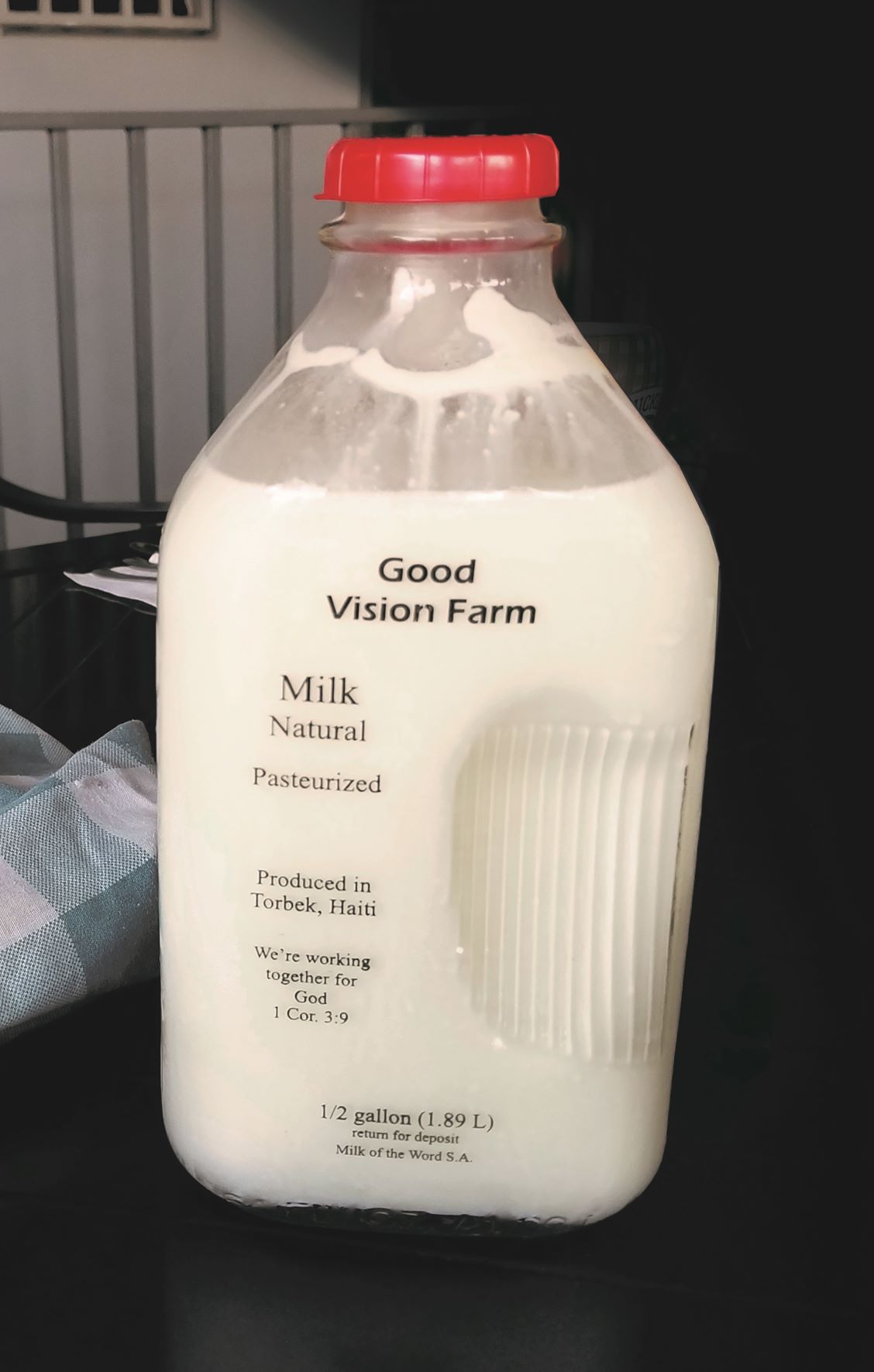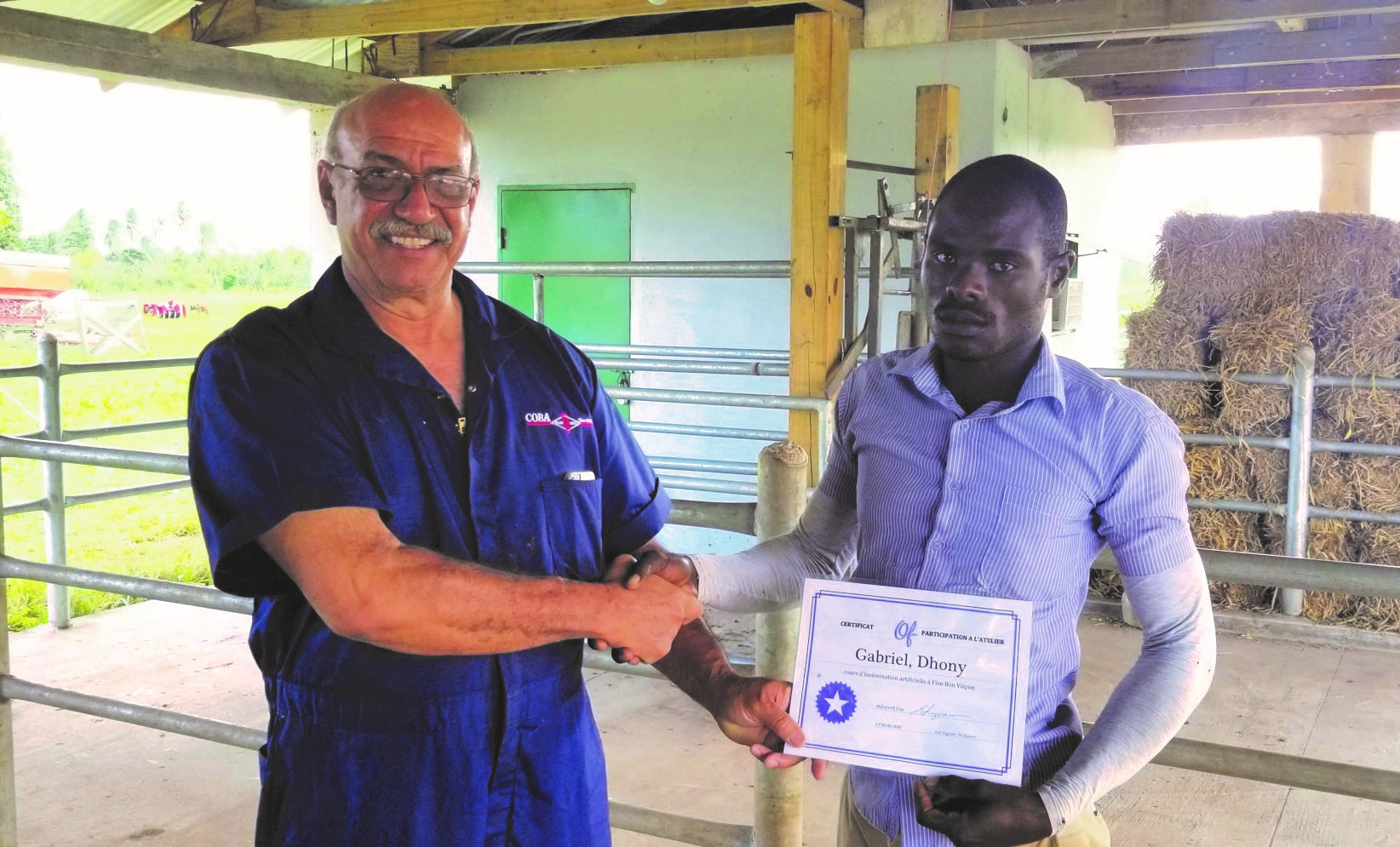As the planning began, I learned more about the special project and the community I would be visiting. Haiti has been a constant on our news channels in the United States. The country has been plagued by natural disasters, political instability and
a poor economy. These details made it difficult to set a final travel date and the trip was postponed twice. Finally, in February 2020, I flew to Port-au-Prince and then took a local flight to Les Cayes, the location of Good Vision Farm.
 That initial request from Rick was on behalf of Matt Steiner, owner and operator of Pine Tree Dairy in Marshallville, Ohio, and board president of the HarvestCall Haiti Dairy Program. In 2014, the Haiti Dairy Program (HDP) was formed by a small group of Apostolic Christian brothers as aid to the community in Torbeck, Haiti. Good Vision Farm is the name for the model farm and through this mission, the HDP offers dairy management guidance while sharing Christianity. Throughout the years, the 13-acre parcel has been transformed to a dairy production and processing facility and provides great sustenance to the local Haitian community.
That initial request from Rick was on behalf of Matt Steiner, owner and operator of Pine Tree Dairy in Marshallville, Ohio, and board president of the HarvestCall Haiti Dairy Program. In 2014, the Haiti Dairy Program (HDP) was formed by a small group of Apostolic Christian brothers as aid to the community in Torbeck, Haiti. Good Vision Farm is the name for the model farm and through this mission, the HDP offers dairy management guidance while sharing Christianity. Throughout the years, the 13-acre parcel has been transformed to a dairy production and processing facility and provides great sustenance to the local Haitian community.
Today, Good Vision Farm has facilities for feed storage, animal handling, milking and milk processing, as well as living quarters for missionaries and guests. Local dairy farmers bring their animals to Good Vision Farm each morning to be milked and are paid for production on a weekly basis. Milk is then processed at the farm and available to the community at local markets.
The milking facilities at Good Vision Farm offer a source of income to families and help to stimulate the local economy. The processing facilities offer a safe and healthy source of protein for the community, especially Haitian children.
The resources provided by the HDP cover all aspects of dairy farming, from planting crops and cow health, to milk processing and genetics. The young Haitian men were extremely engaged and interested in learning about all aspects of dairy management,
including genetics and reproduction. I worked with an English to French translator to train six individuals on techniques to A.I. cows. Our only limitation – not enough practice cows.
Training these men was as much of a learning experience for
me and fellow volunteers as it was for them. We also discussed cow nutrition and protein sources. Good Vision Farm makes silage to feed their cows, but it is challenging to find a quality source of protein for the ration. In Haiti, you can’t
visit your local feed store and buy soybean meal or cotton seed meal. Instead, they use tropical legumes and must be careful to select a crop that is not consumed as a human food item. In our discussions, I recommended Leucaena leucocephala
and Pueraria phaseoloides. Both crops are used in tropical countries around the world. I saw Leucaena growing wild all over the neighborhood of the farm and was told that Pueraria, also known as Kudzu, is being used on a nearby farm.
Another goal of the program is to provide better genetics to local dairymen. We spent many hours discussing cattle imports, the need for heat-tolerant genetics, benefits of crossbreeding and genetics to improve milk production. To say that this community is eager to learn is an understatement. I was inspired by their interest in dairy management and how that interest yields great sustenance for their local community.

Select Sires extends sincere gratitude to the HarvestCall Haiti Dairy Program and Matt Steiner for including our team in this tremendous program, and to LuAnn Troxel for sharing these photos.
As a farmer-owned cooperative, Select Sires is committed to supporting and educating farmers and communities in their work to feed the world.